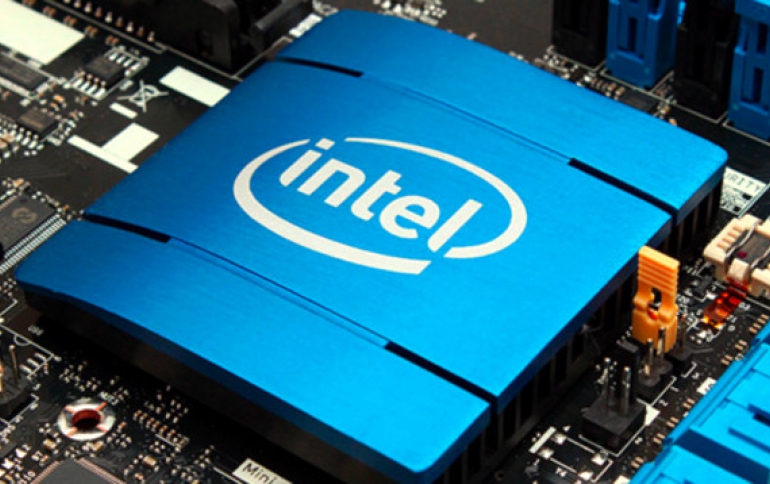
Intel Reveals New Chip Security Flaw
Intel has disclosed Microarchitectural Data Sampling, or MDS, a new set of processor security flaws.
Although both Intel and security researchers who discovered the flaws have never seen exploits in the wild, they’ve been able to create exploits of their own as a proof of concept.
The Intel chipsets released this year include a fix for the flaws, but the flaws impact every Intel microprocessor released since 2011, so previous versions will need to be patched. Those patches are already available, but some, depending on the chipset, could slow performance by as much as 19 percent.
The security researchers who worked with Intel have released their own information about the flaws, and each has created sample exploits to demonstrate the issues. The RIDL and Fallout speculative execution attacks - that's the name the researchers gave to their tests - allow attackers to leak confidential data across arbitrary security boundaries on a victim system, for instance compromising data held in the cloud or leaking your information to malicious websites. The attacks leak data by exploiting the newly disclosed Microarchitectural Data Sampling (or MDS) side-channel vulnerabilities in Intel CPUs. Unlike existing attacks, the attacks orchestrated by the researchers can leak arbitrary in-flight data from CPU-internal buffers (Line Fill Buffers, Load Ports, Store Buffers), including data never stored in CPU caches. The researchers show that existing defenses against speculative execution attacks are inadequate, and in some cases actually make things worse. Attackers can use the specific attacks to obtain sensitive data despite mitigations, due to vulnerabilities deep inside Intel CPUs.
Another group of researchers has created an exploit called ZombieLoad.
“The ZombieLoad attack allows stealing sensitive data and keys while the computer accesses them,” the ZombieLoad website notes. “While programs normally only see their own data, a malicious program can exploit the fill buffers to get hold of secrets currently processed by other running programs. These secrets can be user-level secrets, such as browser history, website content, user keys, and passwords, or system-level secrets, such as disk encryption keys. The attack does not only work on personal computers but can also be exploited in the cloud.”
Amazon, Apple, Google, Microsoft, and Mozilla have all claimed to have issued fixes for the flaws.
AMD has confirmed that its processors are unaffected by the RIDL and Fallout vulnerabilities.
"...we believe our products are not susceptible to 'Fallout' or 'RIDL' because of the hardware protection checks in our architecture. We have not been able to demonstrate these exploits on AMD products and are unaware of others having done so," reads the AMD statement.





















